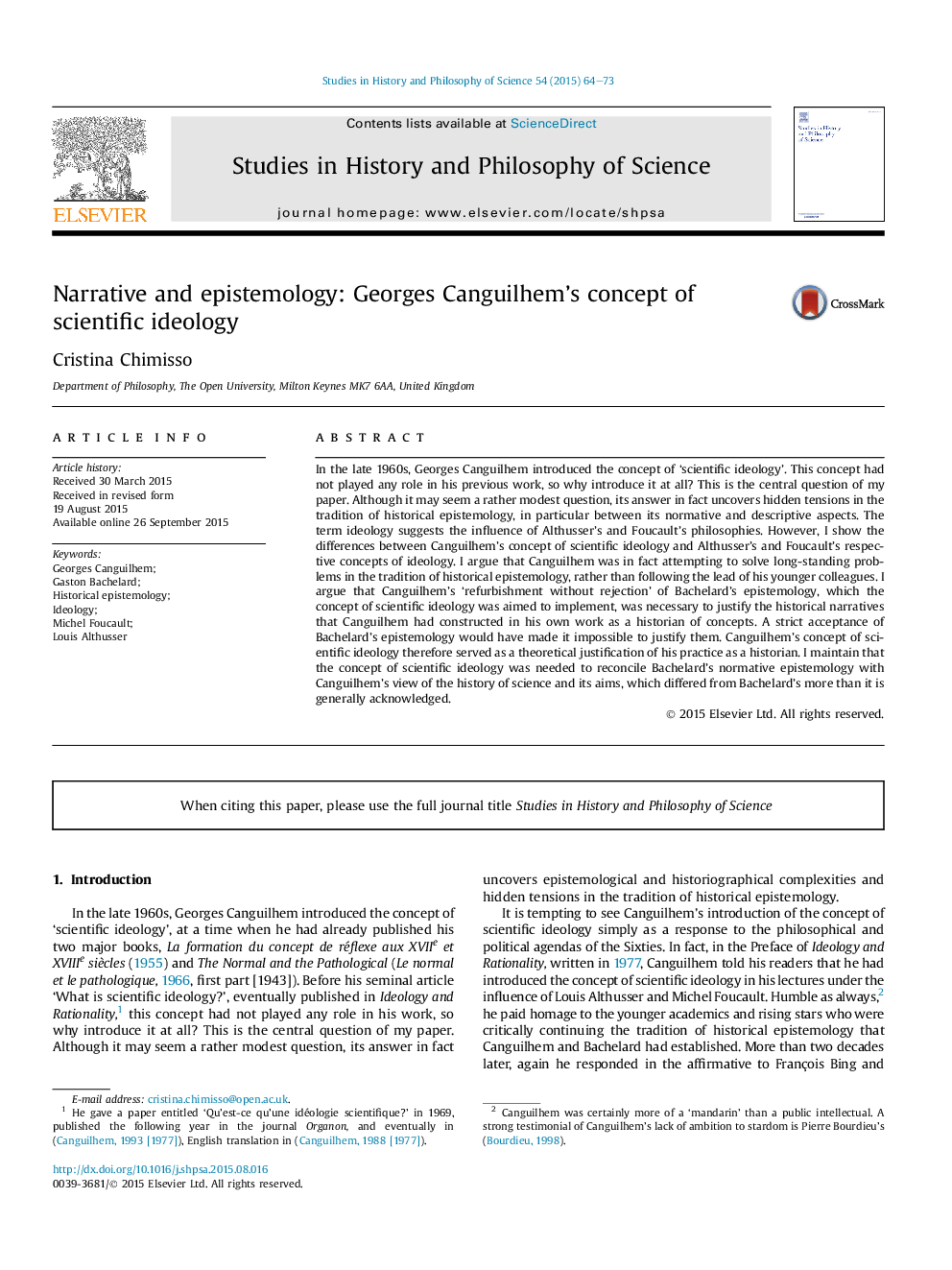| Article ID | Journal | Published Year | Pages | File Type |
|---|---|---|---|---|
| 1160213 | Studies in History and Philosophy of Science Part A | 2015 | 10 Pages |
•Examination of Georges Canguilhem's concept of scientific ideology [SI].•SI was necessary to reconcile Bachelard's epistemology with historical narratives.•I contrast Canguilhem's SI with Foucault's and Althusser's concepts of ideology.•Differences between Bachelard's and Canguilhem's views of history of science.•Canguilhem's revision of the epistemological break between science and non-science.
In the late 1960s, Georges Canguilhem introduced the concept of ‘scientific ideology’. This concept had not played any role in his previous work, so why introduce it at all? This is the central question of my paper. Although it may seem a rather modest question, its answer in fact uncovers hidden tensions in the tradition of historical epistemology, in particular between its normative and descriptive aspects. The term ideology suggests the influence of Althusser's and Foucault's philosophies. However, I show the differences between Canguilhem's concept of scientific ideology and Althusser's and Foucault's respective concepts of ideology. I argue that Canguilhem was in fact attempting to solve long-standing problems in the tradition of historical epistemology, rather than following the lead of his younger colleagues. I argue that Canguilhem's ‘refurbishment without rejection’ of Bachelard's epistemology, which the concept of scientific ideology was aimed to implement, was necessary to justify the historical narratives that Canguilhem had constructed in his own work as a historian of concepts. A strict acceptance of Bachelard's epistemology would have made it impossible to justify them. Canguilhem's concept of scientific ideology therefore served as a theoretical justification of his practice as a historian. I maintain that the concept of scientific ideology was needed to reconcile Bachelard's normative epistemology with Canguilhem's view of the history of science and its aims, which differed from Bachelard's more than it is generally acknowledged.
